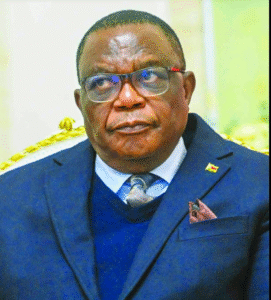ZIMBABWE’S JUDICIAL SYSTEM EXPOSED: ZANU PF ALLIES GET SWIFT BAIL, OPPOSITION LANGUISH IN CELLS

A new report has pulled back the curtain on Zimbabwe’s deeply flawed judicial system, exposing how bail is no longer about justice—it’s about who you know and which political party you belong to. Human rights lawyers Justice Alfred Mavedzenge and Musa Kika, writing for the Journal of Democracy Governance and Human Rights, have provided chilling evidence of how ZANU PF allies are treated like royalty in the courts, while opposition members are tossed aside like criminals.
The findings are shocking, but not surprising. Zimbabweans have long known that justice in this country is selective. Now, there’s clear proof to back what many have witnessed for years: ZANU PF-linked suspects get bail within days, even for serious crimes like murder and corruption. Meanwhile, opposition members accused of speaking out or protesting can spend over a year in jail before even seeing the inside of a courtroom.
One example speaks volumes: 13 ZANU PF activists charged with inciting violence in Glen View were out on bail in just nine days. Contrast that with activist Makomborero Haruzivishe—he spent 14 months in jail for a protest-related offense where no one even died. Another disgraceful case involves the “Zanu PF 11,” accused of killing a CCC supporter. They got bail in 46 days. Yet Job Sikhala, a prominent opposition figure, rotted in pre-trial detention for 595 days—for merely calling for justice.
This isn’t just a legal failure—it’s a national disgrace. The courtrooms have turned into political theatres where the scales of justice tilt heavily in favour of the ruling elite.
The report goes further, pointing fingers at magistrates who are either complicit or afraid. It accuses them of unethical behaviour—colluding with outside forces, allowing manipulation of court records, and bending the law to suit political agendas. This level of decay within the justice system shows that the problem is not just one of bad policy but of deliberate sabotage of fairness.
To fix this mess, Mavedzenge and Kika recommend bold reforms. They call on the Judicial Service Commission to introduce systems that allow magistrates to report threats anonymously. They also push for full digital recording of all court proceedings, so no one can tamper with records behind closed doors.
But fixing the judiciary also means changing the laws. The report urges Parliament to amend the Criminal Procedure and Evidence Act. Right now, it gives courts too much room to deny bail, especially to government critics. Bail should be a right, not a political privilege.
The disparity in bail isn’t just about individuals. It affects how citizens view the law. When ZANU PF’s corrupt elites like Henrietta Rushwaya and Priscilla Mupfumira walk free while opposition voices like Joanna Mamombe or Pride Mkono are locked up, it sends a clear message: justice in Zimbabwe has been hijacked.
This is not how a democracy behaves. This is how an authoritarian state punishes dissent and protects its inner circle.
Civil society must act now. Lawyers, human rights groups, and ordinary citizens must pressure lawmakers to reform the laws and clean up the judiciary. The courts are supposed to protect the people, not punish them for thinking differently from the ruling party.
Zimbabwe cannot talk about being open for business or committed to reform while its justice system operates like a ZANU PF security branch. The courts must belong to the people, not the party.
The truth is out. The time for silence is over. The time for justice is now.



